Reading Hub
Regenesis
Author: George Monbiot
Regenesis is a breathtaking vision of a new future for food and for humanity. Drawing on astonishing advances in soil ecology, Monbiot reveals how our changing understanding of the world beneath our feet could allow us to grow more food with less farming. He meets the people who are unlocking these methods, from the fruit and vegetable grower revolutionising our understanding of fertility; through breeders of perennial grains, liberating the land from ploughs and poisons; to the scientists pioneering new ways to grow protein and fat. Together, they show how the tiniest life forms could help us make peace with the planet, restore its living systems, and replace the age of extinction with an age of regenesis.
Where to buy:
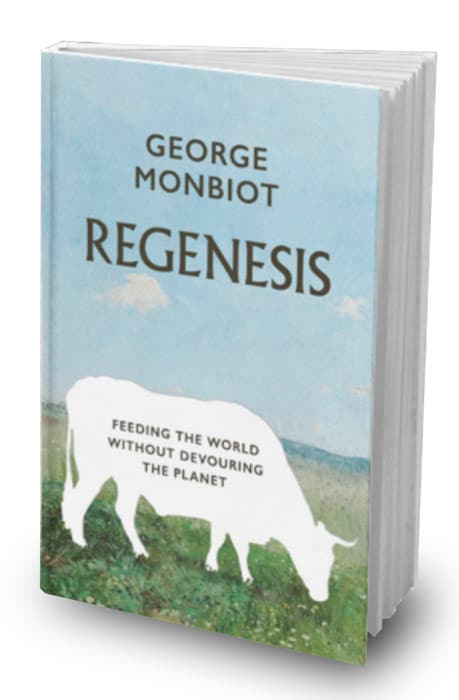
Key Reports
Climate Change 2022: Mitigation of Climate Change
Source: Intergovernmental Panel on Climate Change (IPCC)
Authors: IPCC Working Group III
The Working Group III report provides an updated global assessment of climate change mitigation progress and pledges, and examines the sources of global emissions. It explains developments in emission reduction and mitigation efforts, assessing the impact of national climate pledges in relation to long-term emissions goals.
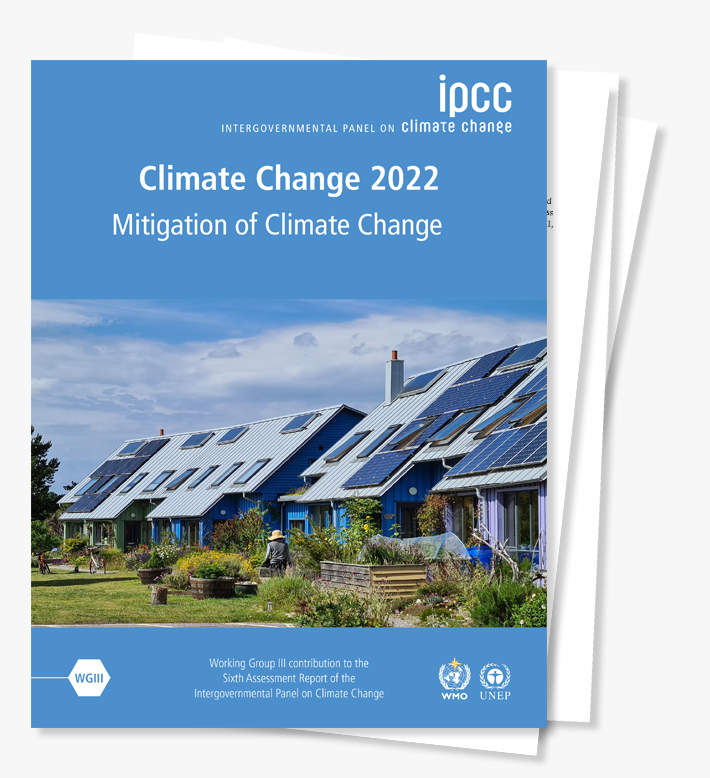
IPCC Sixth Assessment Report (2021)
Source: Intergovernmental Panel on Climate Change (IPCC)
Authors: IPCC Working Group I
The report addresses the most up-to-date physical understanding of the climate system and climate change, bringing together the latest advances in climate science, and combining multiple lines of evidence and highlighting the critical need for humanity to act urgently to tackle the climate crisis.
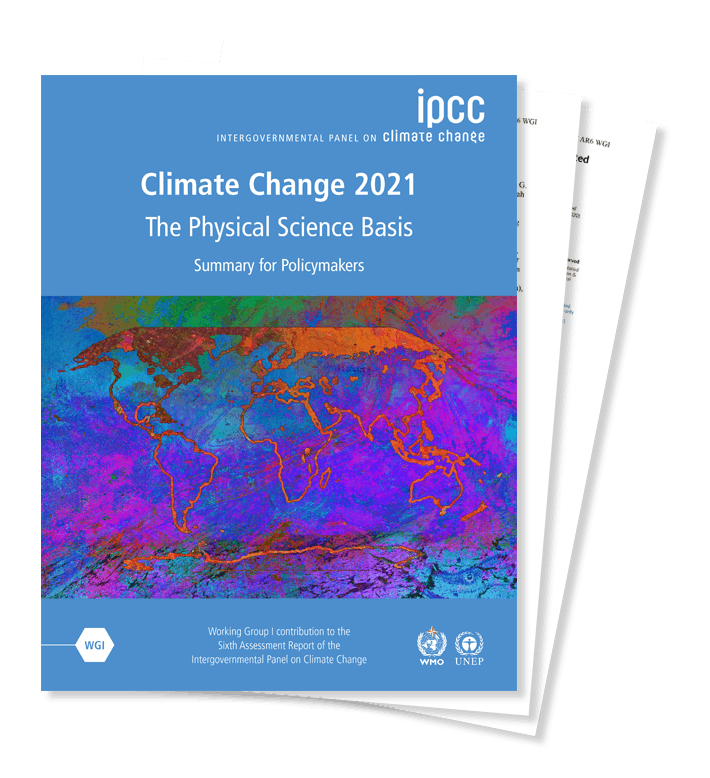
Food System Impacts on Biodiversity Loss (2021)
Source: Chatham House
Authors: Tim G. Benton, Carling Bieg, Helen Harwatt, Roshan Pudasaini and Laura Wellesley
Collaborated by a top UK policy advisory body, this paper explores the role of the global food system as the principal driver of accelerating biodiversity loss. It explains how food production is degrading or destroying natural habitats and contributing to species extinction. The paper outlines the challenges and trade-offs involved in redesigning food systems to restore biodiversity and/or prevent further biodiversity loss, and presents recommendations for action.
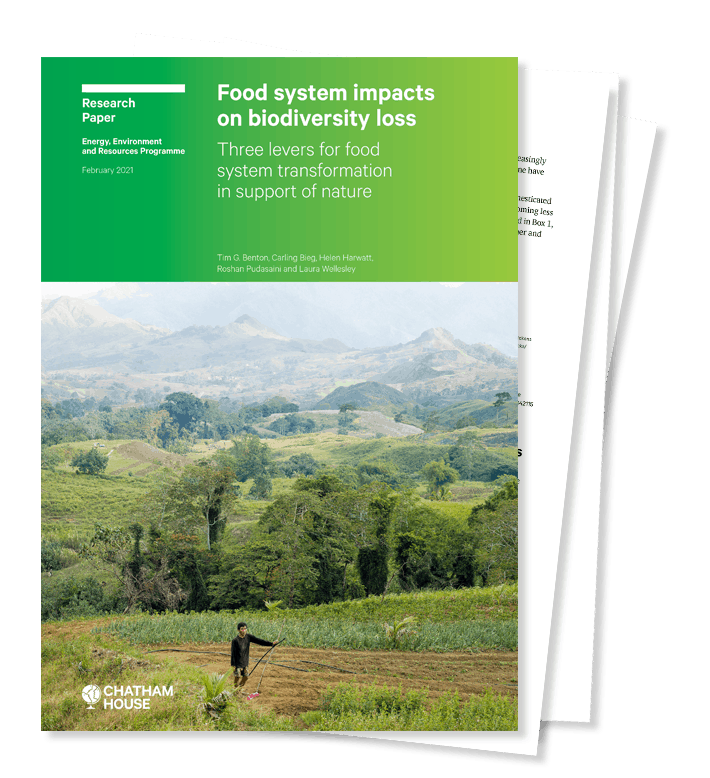
IPCC Special Report on Climate Change and Land (2020)
Source: Intergovernmental Panel on Climate Change (IPCC)
Authors: IPCC Working Groups I, II and III
This report addresses greenhouse gas (GHG) fluxes in land-based ecosystems, land use and sustainable land management in relation to climate change adaptation and mitigation, desertification, land degradation and food security.
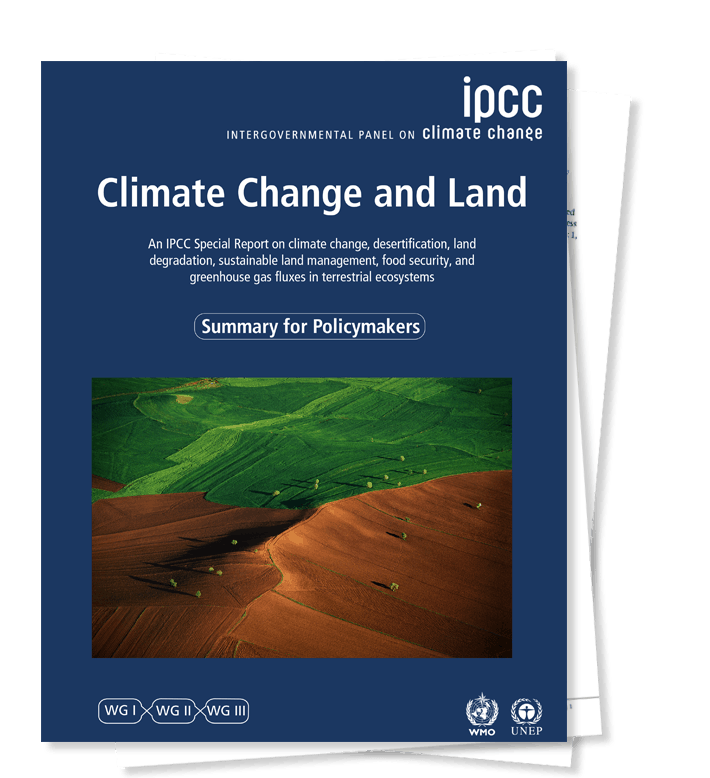
Changing Climate, Changing Diets: Pathways to Lower Meat Consumption (2015)
Source: Chatham House
Authors: Laura Wellesley, Catherine Happer and Antony Froggatt
This Chatham House report highlights the important issues of diet – in particular meat consumption – and the significant contributions such dietary choices make to climate change. Pathways to transforming our food system, as well as analysis of the core problems, are outlined alongside essential recommendations.
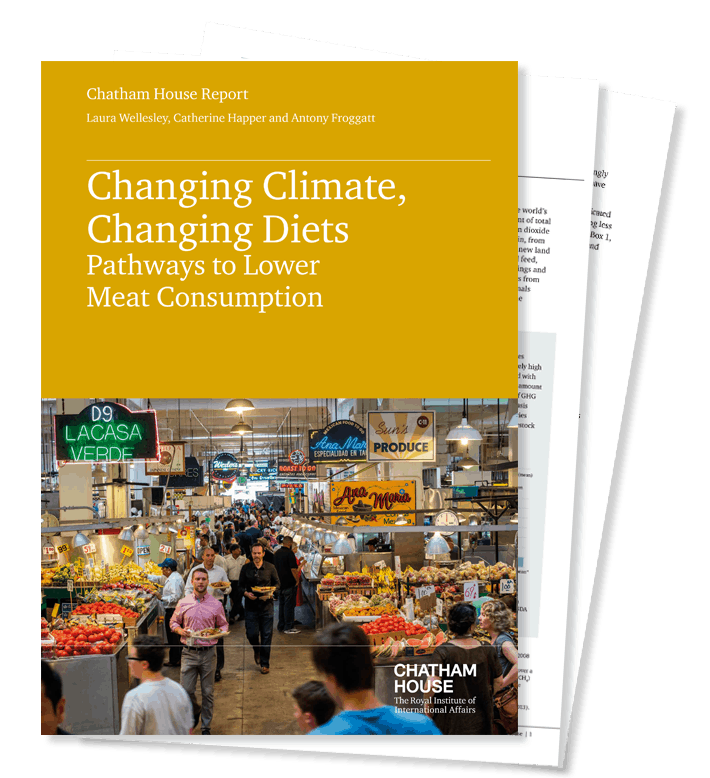
Plant Based Treaty Position Papers
Appetite for a Plant Based Treaty?
The IPCC repeatedly demonstrates that a vegan diet is the optimal diet to drastically reduce food related emissions.
Release date: June 6th, 2022
Immediate, rapid, and sustained cuts to greenhouse gas emissions from both fossil fuels and animal agriculture is imperative to avoiding catastrophic climate breakdown.
The Plant Based Treaty offers a roadmap for a fast and just transition to a plant-based food system this decade in response to the climate emergency.
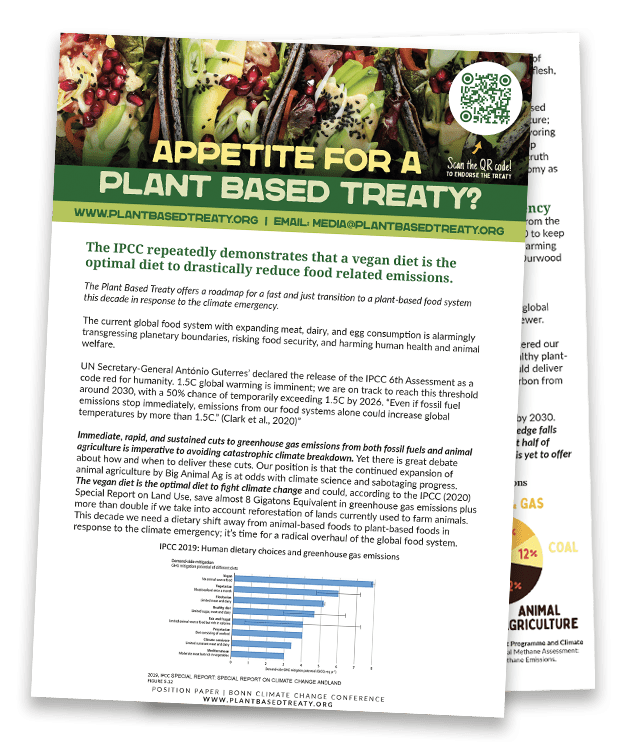
Books
Breaking Boundaries (2021)
Authors: Johan Rockström and Owen Gaffney
On the brink of a critical moment in human history, this book presents a vision of “planetary stewardship” – a rethinking of our relationship with our planet – and plots a new course for our future.
The authors, whose work is the subject of a new Netflix documentary released in summer 2021 and narrated by Sir David Attenborough, reveal the full scale of the planetary emergency we face – but also how we can stabilise Earth’s life support systems.
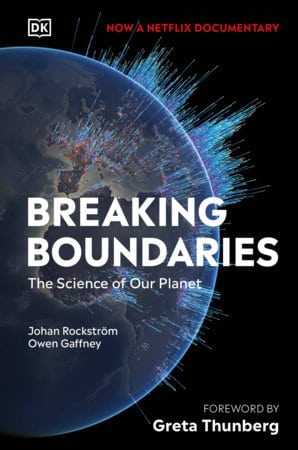
Scientific studies
Vegans, vegetarians, fish-eaters and meat-eaters in the UK show discrepant environmental impacts
Authors: Peter Scarborough, Michael Clark, Linda Cobiac, Keren Papier, Anika Knuppel, John Lynch, Richard Harrington, Tim Key & Marco Springmann
Published: July 2023
Abstract:
Modelled dietary scenarios often fail to reflect true dietary practice and do not account for variation in the environmental burden of food due to sourcing and production methods. Here we link dietary data from a sample of 55,504 vegans, vegetarians, fish-eaters and meat-eaters with food-level data on greenhouse gas emissions, land use, water use, eutrophication risk and potential biodiversity loss from a review of 570 life-cycle assessments covering more than 38,000 farms in 119 countries. Our results include the variation in food production and sourcing that is observed in the review of life-cycle assessments. All environmental indicators showed a positive association with amounts of animal-based food consumed. Dietary impacts of vegans were 25.1% (95% uncertainty interval, 15.1–37.0%) of high meat-eaters (≥100 g total meat consumed per day) for greenhouse gas emissions, 25.1% (7.1–44.5%) for land use, 46.4% (21.0–81.0%) for water use, 27.0% (19.4–40.4%) for eutrophication and 34.3% (12.0–65.3%) for biodiversity. At least 30% differences were found between low and high meat-eaters for most indicators. Despite substantial variation due to where and how food is produced, the relationship between environmental impact and animal-based food consumption is clear and should prompt the reduction of the latter.
Estimating the environmental impact of 57,000 food products
Authors: Michael Clark, Marco Springmann, Mike Rayner and Richard A. Harrington
Published: 2022
Abstract:
Understanding and communicating the environmental impacts of food products is key to enabling transitions to environmentally sustainable food systems [El Bilali and Allahyari, Inf. Process. Agric. 5, 456–464 (2018)]. While previous analyses compared the impacts of food commodities such as fruits, wheat, and beef [Poore and Nemecek, Science 360, 987–992 (2018)], most food products contain numerous ingredients. However, because the amount of each ingredient in a product is often known only by the manufacturer, it has been difficult to assess their environmental impacts. Here, we develop an approach to overcome this limitation. It uses prior knowledge from ingredient lists to infer the composition of each ingredient, and then pairs this with environmental databases [Poore and Nemecek Science 360, 987–992 (2018); Gephart et al., Nature 597, 360–365 (2021)] to derive estimates of a food product’s environmental impact across four indicators: greenhouse gas emissions, land use, water stress, and eutrophication potential. Using the approach on 57,000 products in the United Kingdom and Ireland shows food types have low (e.g., sugary beverages, fruits, breads), to intermediate (e.g., many desserts, pastries), to high environmental impacts (e.g., meat, fish, cheese). Incorporating NutriScore reveals more nutritious products are often more environmentally sustainable but there are exceptions to this trend, and foods consumers may view as substitutable can have markedly different impacts. Sensitivity analyses indicate the approach is robust to uncertainty in ingredient composition and in most cases sourcing. This approach provides a step toward enabling consumers, retailers, and policy makers to make informed decisions on the environmental impacts of food products.
Global greenhouse gas emissions from animal-based foods are twice those of plant-based foods
Authors: Xiaoming Xu, Prateek Sharma, Shijie Shu, Tzu-Shun Lin, Philippe Ciais, Francesco N. Tubiello, Pete Smith, Nelson Campbell & Atul K. Jain
Published: 2021
Abstract:
Agriculture and land use are major sources of greenhouse gas (GHG) emissions but previous estimates were either highly aggregate or provided spatial details for subsectors obtained via different methodologies. Using a model–data integration approach that ensures full consistency between subsectors, we provide spatially explicit estimates of production- and consumption-based GHG emissions worldwide from plant- and animal-based human food in circa 2010. Global GHG emissions from the production of food were found to be 17,318 ± 1,675 TgCO2eq yr−1, of which 57% corresponds to the production of animal-based food (including livestock feed), 29% to plant-based foods and 14% to other utilizations. Farmland management and land-use change represented major shares of total emissions (38% and 29%, respectively), whereas rice and beef were the largest contributing plant- and animal-based commodities (12% and 25%, respectively), and South and Southeast Asia and South America were the largest emitters of production-based GHGs.
Reducing food’s environmental impacts through producers and consumers
Authors: J. Poore and T. Nemecek
Published: 2018
Abstract:
Food’s environmental impacts are created by millions of diverse producers. To identify solutions that are effective under this heterogeneity, we consolidated data covering five environmental indicators; 38,700 farms; and 1600 processors, packaging types, and retailers. Impact can vary 50-fold among producers of the same product, creating substantial mitigation opportunities. However, mitigation is complicated by trade-offs, multiple ways for producers to achieve low impacts, and interactions throughout the supply chain. Producers have limits on how far they can reduce impacts. Most strikingly, impacts of the lowest-impact animal products typically exceed those of vegetable substitutes, providing new evidence for the importance of dietary change. Cumulatively, our findings support an approach where producers monitor their own impacts, flexibly meet environmental targets by choosing from multiple practices, and communicate their impacts to consumers.
